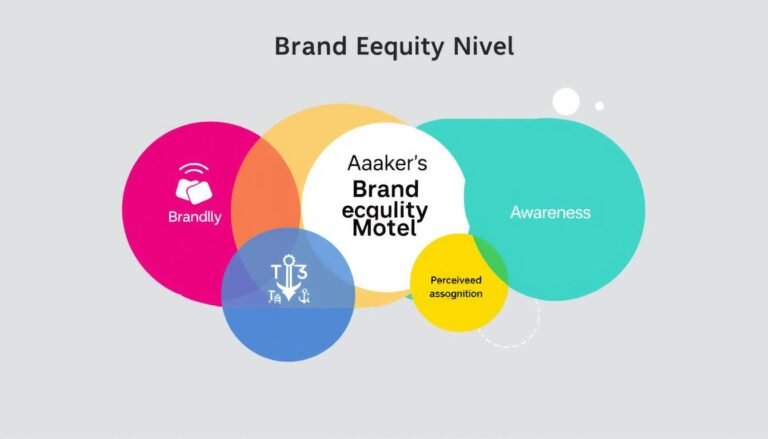Stakeholder Theory: Balancing Corporate Interests
Is putting shareholder profits first a bad idea? Stakeholder Theory shows us why it’s key to balance different interests in a company. By looking at stakeholder analysis and management, companies can connect with more people. This includes employees, customers, suppliers, and communities.
This article dives into how Stakeholder Theory is vital for businesses today. It shows how companies are changing to include many viewpoints for lasting success.
Key Takeaways
- Balancing stakeholder and shareholder interests is essential for long-term organizational health.
- 88% of stakeholders favor products from corporations demonstrating a philanthropic concern.
- Community resistance can lead to significant operational inefficiencies and costs.
- Successful stakeholder engagement enhances transparency and accountability in corporate governance.
- The debate between shareholder theory and stakeholder theory is shaping the future of corporate strategies.
- Women directors are more inclined to favor stakeholder models, indicating a shift in governance culture.
- It often takes 12 positive experiences to heal the damage from a single negative stakeholder encounter.
The Importance of Stakeholder Theory in Modern Business
Knowing who your stakeholders are is key for any business to succeed today. Stakeholder Theory shows why it’s important for companies to understand what different people want and need. This helps businesses manage better, being fair, honest, and generous to everyone involved.
Understanding Stakeholders
Stakeholders are people or groups who care about how a company does and what it achieves. Using a stakeholder framework helps identify and sort out who these people are. This way, companies can make decisions that meet everyone’s needs. Good communication is crucial to share messages that keep stakeholders involved and happy.
This approach helps companies work better together and succeed.
The Impact of Regulatory Changes
Rules and regulations change often, so businesses must keep up. By focusing on stakeholder needs, companies improve their ethics and follow new laws. Research shows that caring for stakeholders can make a business do better financially and socially.
Even though some still push for focusing on shareholders, stakeholder engagement is vital. It leads to a business model that cares more about society.
Key Principles of Stakeholder Theory
The stakeholder model is built on understanding the different groups affected by company decisions. These include customers, employees, suppliers, investors, and the wider community. It says companies should aim to add value for everyone, not just shareholders. This change reflects a move towards more ethical and responsible business practices.
Multiple Stakeholders and Their Interests
Stakeholder Theory includes more than just the usual groups. It also covers media, government, political groups, trade associations, and unions. This wider view shows that businesses are part of a complex network of relationships. By considering everyone’s interests, companies can manage stakeholders better.
Doing a detailed stakeholder analysis helps identify who is affected and what they need. This leads to stronger relationships and smarter decisions.
The Push for Long-term Sustainability
Sustainability is key in the stakeholder model. Companies must plan in a way that benefits everyone and supports growth. This means looking at environmental, social, and governance (ESG) issues.
Companies that focus on stakeholders can create lasting value for everyone. This approach builds trust and sets the stage for success over time.
Stakeholder Engagement in Corporate Governance
Stakeholder engagement is key in corporate governance. It builds trust and makes everyone accountable. By using different ways to talk to stakeholders, companies get a stronger governance structure. Adding stakeholder theory to business makes companies more responsive to what their stakeholders want.
Distinct Forms of Engagement
Companies can use many ways to talk to stakeholders better. Some examples are:
- Stakeholder forums for open talks and feedback
- Advisory boards with people from stakeholder groups
- Regular updates on how the company is governed
- Using social media and online to reach more people
These methods help companies match their goals with what stakeholders want. In August 2019, 181 CEOs from big companies backed the stakeholder model. This shows a big move towards listening to more people in company decisions.
Constructing Transparent Communication Frameworks
Creating clear ways to talk is key for good stakeholder engagement. These ways make sure companies and stakeholders can talk openly. Tools like Simply Stakeholders help track and understand what stakeholders think and need.
With a focus on Environmental, Social, and Governance (ESG) metrics, companies must show they care about stakeholders. A strong governance structure, based on what stakeholders expect, helps with ethics and long-term success.
Examining Case Studies: Lessons in Stakeholder Management
Case studies show us big lessons in managing stakeholders. They tell us how important it is to understand what stakeholders want. Looking at big incidents like the Enron scandal and the BP Deepwater Horizon disaster, we see how ignoring stakeholders can cause big problems.
The Enron Scandal and Its Implications
The Enron scandal shows what happens when companies focus too much on making money. This led to a culture of lies and caused the company to fail. It hurt employees and investors and showed us the need for a good stakeholder approach to avoid such failures.
Insights from the BP Deepwater Horizon Disaster
The BP Deepwater Horizon disaster shows the dangers of not caring about safety and the environment. Bad risk management and ignoring worker safety caused a huge environmental disaster. This tells us that companies must think about everyone, including the environment, when making decisions.
What Went Wrong with Volkswagen?
Volkswagen’s emissions scandal warns us not to put making money first. Lying about emissions hurt trust and damaged the brand. It shows the importance of being honest with stakeholders and following ethical practices to avoid big problems.
These stories teach us how important it is to use stakeholder theory to avoid mistakes. Understanding what stakeholders want helps companies make better decisions that benefit everyone involved.
| Case Study | Key Takeaway | Impacted Stakeholders |
|---|---|---|
| Enron | Importance of ethical governance | Employees, investors |
| BP Deepwater Horizon | Significance of environmental safety | Local communities, environmental groups |
| Volkswagen | Need for corporate integrity | Customers, regulators |
Stakeholder Theory Applications Across Industries
The Stakeholder Theory is used in many areas like finance, healthcare, manufacturing, and technology. It shows how important it is to think about different people when making decisions. This leads to a strong business that cares for everyone involved.
Companies that focus on their stakeholders do better. They make sure to meet the needs of customers, suppliers, employees, and communities. By valuing these relationships, they can come up with new ideas and stay strong through tough times.
The table below shows how different sectors use stakeholder management to make better choices:
| Industry | Application of Stakeholder Theory | Benefits |
|---|---|---|
| Finance | Integrating stakeholder interests in investment strategies | Enhanced reputation and informed decision-making |
| Healthcare | Incorporating patient feedback for service improvement | Improved patient satisfaction and outcomes |
| Manufacturing | Considering employee and community needs in facility expansion | Sustainability and longevity of operations |
| Technology | Engaging with users for product development feedback | Increased innovation and user-centric products |
Knowing what stakeholders need helps companies last longer. It shows that caring for stakeholders is key to overcoming challenges. This includes balancing different interests and following the law.
Conclusion
Stakeholder Theory is key for handling today’s complex corporate governance. It was first suggested by Dodd to address ethical issues with putting shareholders first. The theory shows we must consider the needs of all stakeholders, like shareholders, employees, customers, suppliers, and the community.
R. Edwards Freeman’s work on stakeholder engagement shows how these groups depend on each other. He suggests a balanced strategy for companies to do well and stay ethical.
Case studies like the Enron scandal and the BP Deepwater Horizon disaster show the dangers of ignoring stakeholder needs. These examples warn companies not to put profits over people and the planet. By engaging with stakeholders and adopting a more inclusive governance, companies can protect their reputation and ensure long-term success.
By adopting Stakeholder Theory, businesses can balance making money with doing what’s right. This approach helps all stakeholders win. As companies focus more on being socially responsible, they’ll keep shaping a better, more ethical future for everyone.
Source Links
- Stakeholders, stakeholder theory and Corporate Social Responsibility (CSR) – International Journal of Corporate Social Responsibility
- The stakeholder model of corporate governance
- Balancing Shareholder and Stakeholder Interests in Corporate Governance
- Stakeholder Theory As an Ethical Approach to Effective Management: Applying the Theory to Multiple Contexts
- THE RELEVANCE OF STAKEHOLDER THEORY AND STRATEGIC COMMUNICATION MANAGEMENT IN CURRENT ORGANISATIONS
- What is the Stakeholder Theory Strategy ?
- Stakeholder Theory and How to Apply It
- Principles and Purpose: A Statement on Stakeholders | Darden Ideas to Action
- Corporate Governance: The Role Of Different Stakeholders
- The Stakeholder Model and ESG
- Stakeholder – Corporate Governance, Management, Relations
- Stakeholder theory and management: Understanding longitudinal collaboration networks
- A Dynamic Approach to Stakeholder Theory: A Case Study of Labor – Management Relations at General Motors
- Comparison of stakeholder management and change management factors in managing successful versus unsuccessful it projects
- What Is Stakeholder Theory? Benefits, Challenges & Application
- Stakeholder: How Ed Freeman’s Vision for Responsible Business Moved From Theory to Reality
- The Stakeholder Theory Summary
- What Is Stakeholder Theory? | Smartsheet







